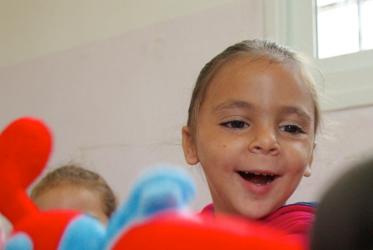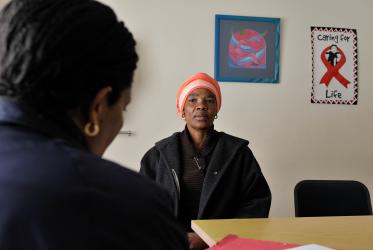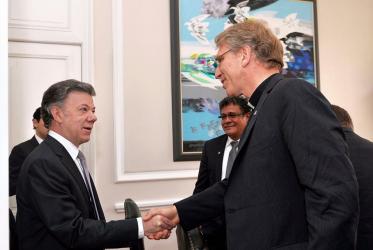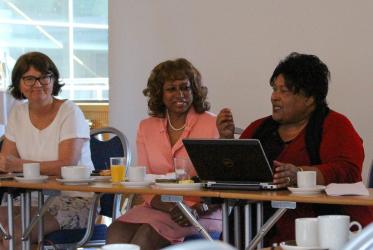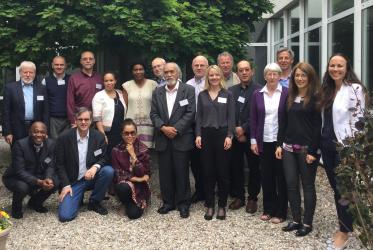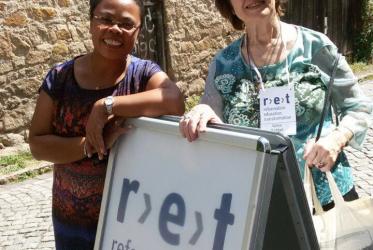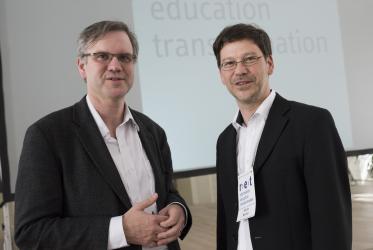Displaying 821 - 840 of 1101
New member churches welcomed in WCC
27 June 2016
Local work by faith-based groups key to ending AIDS
27 June 2016
WCC welcomes ceasefire agreement in Colombia
25 June 2016
Tveit in South Africa: “ We know. We dare. We can.”
12 June 2016
In Nigeria, end to stigma begins in the Bible
10 June 2016
WCC mourns the death of Federico Pagura
09 June 2016
Ecumenical educators plan global institute
25 May 2016
Winners of WCC photo contest announced
09 May 2016
